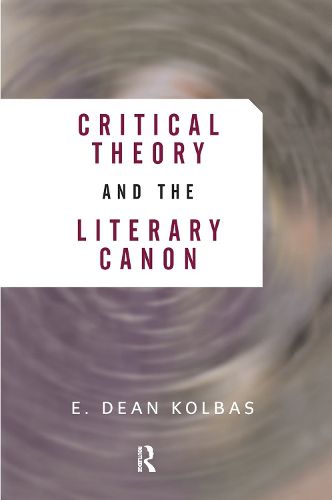Readings Newsletter
Become a Readings Member to make your shopping experience even easier.
Sign in or sign up for free!
You’re not far away from qualifying for FREE standard shipping within Australia
You’ve qualified for FREE standard shipping within Australia
The cart is loading…






Kolbas stakes out new territory in assessing the war over literary canon formation, a subject that contemporary polemicists have devoted much ink to. Throughout this succinct manuscript, Kolbas ranges through the sociology and politics of culture, aesthetic theory, and literary theory to develop his point that texts not only must should be situated in the historical and material conditions of their production, but also evaluated for their very real aesthetic content. One reason the is an important issue, Kolbas contends, is that the canon is not simply enclosed in the ivory tower of academia; its effects are apparent in a much wider field of cultural production and use. He begins by critiquing the conservative humanist and liberal pluralist positions on the canon, which either assiduously avoid any sociological explanation of the canon or treat texts as stand-ins for particular ideologies. Kolbas is sympathetic to the arguments of Bourdieu et. al. regarding positioning the canon in a wider field of cultural production than the university, but argues that theirs are purely sociological explanations of aesthetics (i.e., there is no objective aesthetic content) that ignore art’s autonomous realm, which he argues – a la Adorno – exists (if only problematically). Ultimately, he argues that critical theory, particularly the arguments of Adorno on aesthetics, offers the most fruitful path for evaluating the canon, despite the approach’s clear flaws. His vision is a sociological one, but one that treats the components of the canon as possessing objective aesthetic content, albeit content that shifts in meaning over history.
$9.00 standard shipping within Australia
FREE standard shipping within Australia for orders over $100.00
Express & International shipping calculated at checkout
Kolbas stakes out new territory in assessing the war over literary canon formation, a subject that contemporary polemicists have devoted much ink to. Throughout this succinct manuscript, Kolbas ranges through the sociology and politics of culture, aesthetic theory, and literary theory to develop his point that texts not only must should be situated in the historical and material conditions of their production, but also evaluated for their very real aesthetic content. One reason the is an important issue, Kolbas contends, is that the canon is not simply enclosed in the ivory tower of academia; its effects are apparent in a much wider field of cultural production and use. He begins by critiquing the conservative humanist and liberal pluralist positions on the canon, which either assiduously avoid any sociological explanation of the canon or treat texts as stand-ins for particular ideologies. Kolbas is sympathetic to the arguments of Bourdieu et. al. regarding positioning the canon in a wider field of cultural production than the university, but argues that theirs are purely sociological explanations of aesthetics (i.e., there is no objective aesthetic content) that ignore art’s autonomous realm, which he argues – a la Adorno – exists (if only problematically). Ultimately, he argues that critical theory, particularly the arguments of Adorno on aesthetics, offers the most fruitful path for evaluating the canon, despite the approach’s clear flaws. His vision is a sociological one, but one that treats the components of the canon as possessing objective aesthetic content, albeit content that shifts in meaning over history.